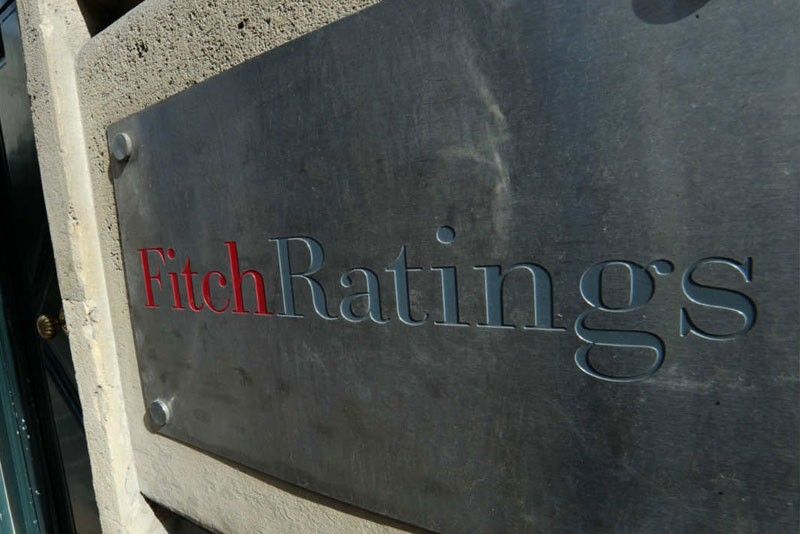Fitch affirms Phlilippines’ investment grade rating

MANILA, Philippines — Fitch Ratings has affirmed the investment grade rating of the Philippines as it expects the economy to grow above six percent this year despite the slower-than-expected expansion in the first quarter.
The debt watcher affirmed the country’s long-term foreign-currency issuer default rating at BBB or a notch above minimum investment grade with a stable outlook.
Bangko Sentral ng Pilipinas Governor Benjamin Diokno said Fitch recognized the implementation of decisive actions by national government to address supply-side issues, including decisive policy rate hikes last year to anchor inflation expectations and contain any second-round effects.
“The much improved inflation outlook, including better anchored inflation expectations, has allowed the BSP to cut policy rates by 25 basis points and to cut the reserve requirement ratio in May,” Diokno said.
Guided by its price stability mandate, Diokno said the BSP would continue to adhere to the conduct of sound monetary policy, making sure it is properly calibrated to provide an environment that enables sustainable economic growth.
Finance Secretary Carlos Dominguez said Fitch has taken note of the Philippine economy’s resilience to both external and domestic headwinds.
“The first package of the comprehensive tax reform program and the liberalization of the rice sector, among a long list of reforms implemented recently, are vital structural changes that will keep the economy on its high growth path, create more jobs, and improve the living standards of Filipinos,” Dominguez said.
Despite external and internal financial threats, Dominguez said economic growth is expected to gain more traction now as the government starts implementing a catch-up spending program on infrastructure and human capital development to reverse the lower-than-expected expansion in the year’s first quarter.
Fitch said the ratings balance the Philippines’ prospects of strong sustainable growth and high levels of foreign-exchange reserves against relatively low per-capita income, governance indicators, and government revenue.
It expects the country’s gross domestic product (GDP) growth slightly slowing down to 6.1 percent this year from 6.2 percent last year after easing to a four-year low of 5.6 percent in the first quarter from 6.3 percent in the fourth quarter of last year.
“We expect the economy to expand at more than six percent per year over the medium term, well above the current peer median. We estimate growth of 6.1 percent in 2019 as momentum is likely to recover after a slowdown to 5.6 percent year-on-year in the first quarter from weaker exports and government spending due to the delay in the passage of the 2019 budget,” it added.
The rating agency said growth would remain supported by strong private consumption and the government’s public-investment program, which targets an increase in infrastructure spending to about seven percent of GDP by 2022 from 4.5 percent in 2017.
It noted downside risks to growth could come from the slowdown in China and spillovers from escalating trade tensions between Washington and Beijing.
Fitch said inflation is seen easing to 3.4 percent this year after accelerating to 5.2 percent last year and exceeding the two to four percent target of the BSP due to elevated oil and food prices, as well as the weak peso.
Inflation eased to a 16-month low of three percent in April from 3.3 percent in March due to the implementation of the Rice Tariffication Law, allowing the BSP’s Monetary Board to slash interest rates by 25 basis points last May 9, reversing the tightening cycle that saw rates rise by 175 basis points in five straight rate-setting meetings between May and November last year to prevent inflation from spiralling out of control.
It also approved the reduction of the reserve requirement ratio for big and mid-sized banks by 200 basis points, as well as for small banks of 100 basis points to release around P210 billion into the financial system over the next three months to boost the economy.
“Fitch believes overheating risks have subsided following the cumulative rate hikes of 175 basis points last year by the BSP,” it said.
The debt watcher expects the country’s budget deficit to hit 3.1 percent of GDP this year and 3.2 percent of GDP next year as revenues would improve to around 17 percent of GDP by 2021 from 16.4 percent of GDP last year.
“The improvement in central government revenues will be the result of a comprehensive tax reform, notably the implementation of tax Package 1A that was passed last year and is expected by the government to deliver the bulk of the revenue gains,” it said.
Fitch also expects some progress in the passage of the remaining parts of the tax reform, which are designed to be broadly revenue-neutral.
S&P Global Ratings recently upgraded the country’s rating to BBB+ or a notch below the much coveted A rating on a stable outlook, while Japan Credit Rating Agency upgraded the country’s outlook to positive from stable on a BBB+ rating.
Both Fitch and Moody’s Investors Service have assigned a BBB or a notch above minimum investment grade rating on the Philippines.
- Latest
- Trending



























